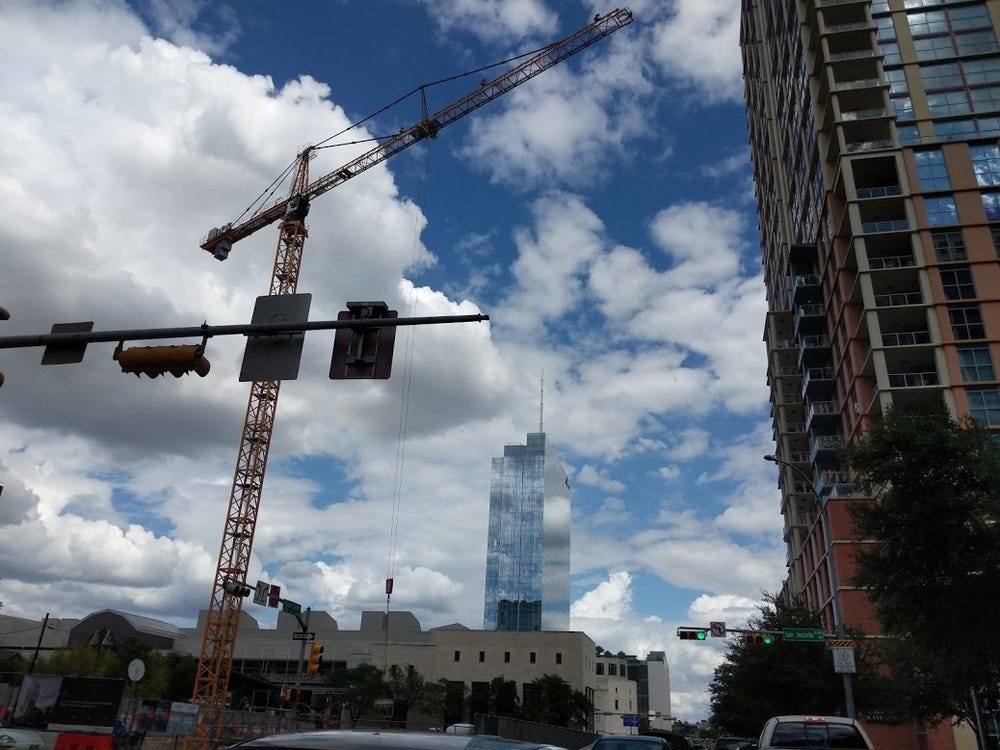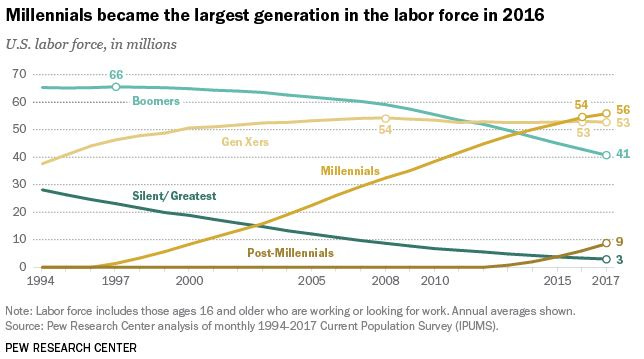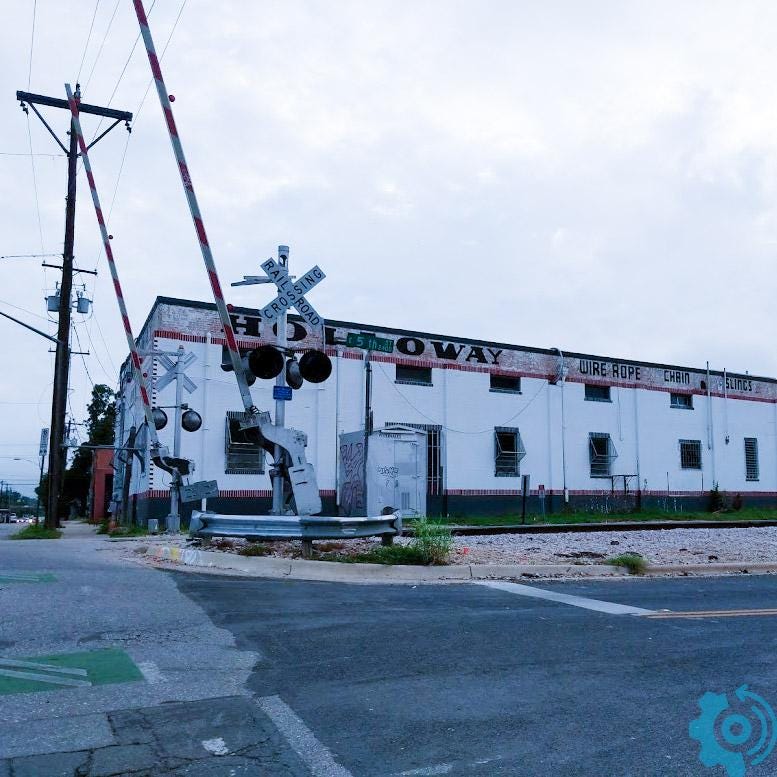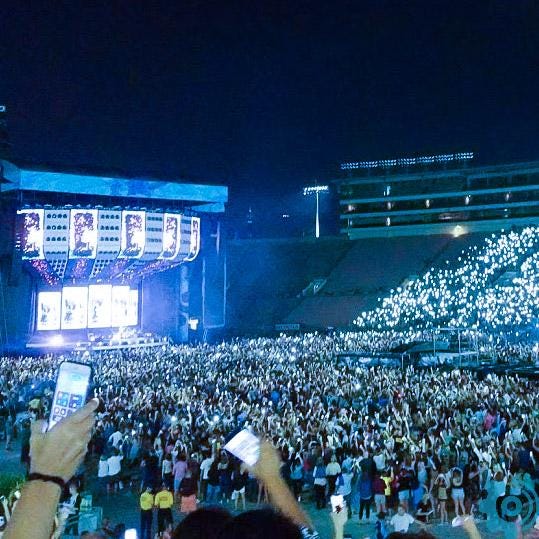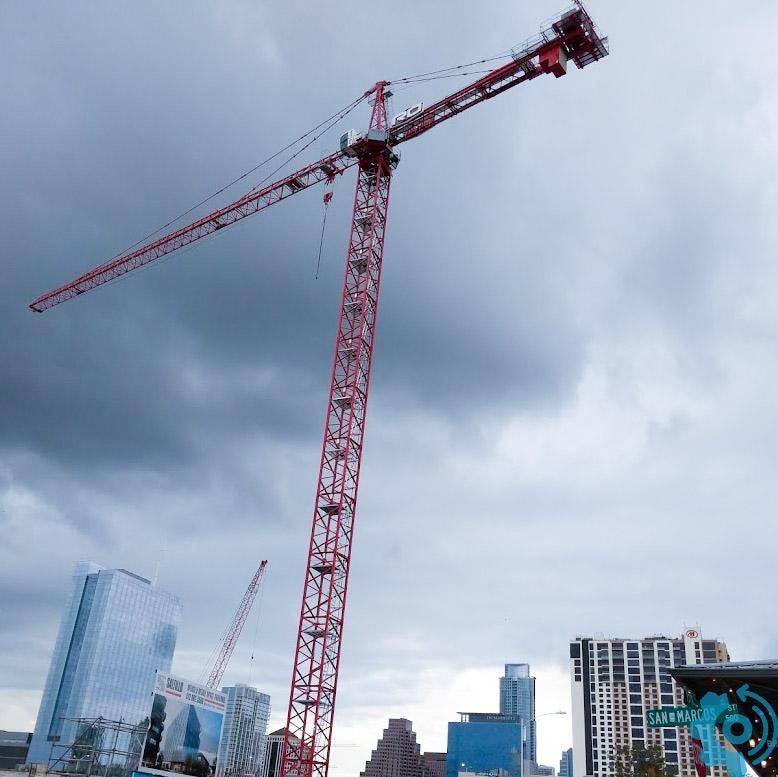8 Ways Millennials Have and Will Change Engineering
Millennials are making waves in the workplace across all industries. They're changing the way we operate our businesses from their expectations as consumers to their performance as employees. Coined Gen Yers or Millennials, these young people are the largest generation the workforce has ever seen. They outranked baby boomers in the workplace by 2014 and Gen Xers by 2016. Their values have already started to seep into the workplace which has forced employers to rethink their strategies and policies. Of the 83.1 million millennials in the US, they account for $600B of expenditures a year. They are our clients and our communities.
In this post, I lay the foundation for exactly how millennials are changing the workplace, and why companies need to shift their priorities to stay relevant and engaged with their increasingly millennial customers and employees. Next month, I break it down step-by-step in how companies can adapt to a changing workplace.
Consumer Finance
You may be thinking, but wait, aren't all millennials in debt and bad with money? The truth is that these stereotypes are not only wholly inaccurate, but are clouding our perception of millennial's impact on the economy. Millennials are less in debt than Gen Xers and will have $1.4T of spending power by 2020. Plus they've got time on their side: time in the stock market. Millennials realize this and take advantage of it. Just look at the popularity of frictionless investing apps like Robinhood, Acorns, and Wealthfront. Millennials also care about where they invest their money and the ethics of their investments. This has led to the growth of "impact investing" because millennials are paying attention to the social repercussions of the companies they support.
The numbers are starting to show just how influential such a large consumer, and voter, base they really are. They may not have voted for a structurally engineered border wall but it is clear that they will influence manufacturing, agriculture, and environmental policy. Their principle-driven framework will influence what professional services are needed from the engineering community.
Philanthropy
Millennials give more money and more time than any other generation. Their hippie parents instilled in them a sense of environmental and social stewardship. They are a philanthropic generation and what's more is that they need to find value in the work that they do so many hours a day. Soon, you will see millennial engineers go after, and win, projects which align with these values. Examples might include sustainable wind farms, seawall resiliency in response to climate change, and [trigger alert] school designs which provide safety from shooters. Companies which want to align themselves with this philanthropic outlook will find a way to empower their own millennial employees and set an example of companies and utilities doing good in their communities.
It's no surprise that millennials, a global connected generation, are busting the barriers defining personal and professional spaces. This has implications for engineering that is far wider than those of us with engineering degrees. Millennials expect companies align themselves with their vision of environmental and social stewardship. This is known as Corporate Social Responsibility (CSR) and your company is likely already marketing their charitable work and positive corporate culture. Large product-based businesses have had sophisticated marketing teams for years and we're starting to see public and service-based entities do the same.
Corporate Technology
Millennials like sharing and accessibility over ownership. We've seen this in how they use AirBnB, Uber, and WeWork. The sharing economy goes deeper. They are using virtual workspaces like Slack and shared documents like OneNote and Google Docs. They collaborate together in our digital spaces and build strong teams by being able to virtually travel across multiple time zones.
Every day I turn in my timesheet updating it anywhere from one to twelve times a day. It take me 8 clicks to get to that webpage. I've counted and so has every other millennial you've worked with. Millennials don't stand for clunky technology, preferring to redesign sleekier, more user-friendly interfaces. This is the generation that grew up with the iPhone and Macbook--anything less than a seamless, consumer-oriented experience is unsatisfactory. Millennials are showing us that they have no qualms with leaving established companies to build competing startups that are digital native. Soon these millennial startups will be delivering projects to your engineering company.
The world is becoming more technologically advanced, with and without help from millennials. This in itself is changing what projects we deliver. Already we've added audio sensors to monitor for gun shots in our neighborhoods and smart meters on just about every public utility. Our practice areas will continue to evolve as our technologies evolve.
You've seen how millennials are changing what we deliver to our customers. Now let's look at how we deliver it.
Millennials are changing WHAT engineering solutions we deliver to our customers and HOW we deliver it.
Work Environment
Millennials have said that they would take a $7,600 reduction in pay for a better environment at work. This speaks to their desire for experiences over material items, a shift from the Gen X and Baby Boomer generations. Further, whereas Gen Xers may turn down promotions to better regulate their own work-life balance, millennials are figuring out how to own their balance by transitioning companies and careers more easily. Because millennials reject the notion of lifers, engineering firms will need to spend more money on staff training and staff retention. New faces bring new ideas and perspectives to form a next level workplace.
Dress Code
You've seen the tech company films where young people walk around in hoodies and apple earbuds. In engineering, we also see this shift. Companies have enacted policies of "dress for your day". Reputation and credibility is less based on dress code; companies are starting to understand that comfort creates more productive environments. Plus, there is less of an emphasis on dressing to identify with the male majority demographic. This is a good thing for enhancing workplace diversity and inclusion. Taken too far the relaxed dress code could swing the pendulum in the other direction limiting worker's sense of style and personal branding, which we've seen is a must for millennial employees. Companies are walking the fine line between navigating what their traditional shareholders expect and providing a sense of belonging and authenticity to drive employee morale.
I expect that we will see a shift to a minimalist wardrobe. One with sustainable ethical clothes (going back to social responsibility). Millennials value ownership of things that are multi-use and this includes clothes which they would want to wear during the week and on the weekends. It's even easier for them to figure out their own style with all the trunk clubs and fashion subscription boxes. Because of mobile apps like Rent The Runway, gone are the days where we advise engineers to "have one good suit in your closet" that they wear once for an interview before it goes out of style. I am especially looking forward to this new future as I feel that fashion advice is unconsciously sexist and often poorly communicated.
Job Fulfillment
Millennials need a sense of fulfillment in what they are doing and who their dollars are supporting. We know that millennials desire good work-life balance and a purposeful job. I often wonder if having more employees that are purpose-driven over money-driven will allow for greater mobility of women in the workplace. Women have typically been purpose-driven and we see that as one of the reasons they do not advocate for top positions like men do, opting to have a more meaningful job than a higher paying one. Now that men also expect the same amount of purpose and fulfillment in their jobs, will we see more women in top positions? Or perhaps we will see engineering projects shift entirely as described earlier.
Salary & Benefits
You've see millennials hashtag #selfcare and #mentalhealth even advocating for mental health days. On the whole, they are less concerned about the stigma related to mental health. They also tend to take advantage of their workplace benefits and have morphed the way we administer those benefits to online, virtual, and texting-based sessions. They have changed what is offered in employee assistance programs: time management, financial, emotional and stress-based counselling sessions and career coaching. Engineering firms are perfectly suited for this trend as they tend to have great benefit packages updated regularly.
Talk of compensation is a favorite among my millennial friends and girl bosses. Along with everything else that millennials are supposedly killing, they are also doing away with the taboo around salaries. Pay transparency laws have even been enacted at the state government level and up to a third of coworkers share their salary information openly. The millennial generation is supportive of transparency to reduce the wage gap and promote fair and lawful pay practices (references here and here just to start). The University of Colorado engineering department uses an equation to figure this out (naturally). Your company also probably uses an algorithm and it makes sense to broadcast those pay bands even if you dislike the idea of your individual pay being public knowledge.
Salary = function (job code × education × experience / skill set × merit) + location
Management
From the days of "one minute manager", we've progressed even further to leadership over management. Studies have shown that employees are more productive and engaged with more autonomy. According to Gallup, managers become coaches as the management level becomes decentralized. This model isn't just for consulting engineering. Millennials who are ambitious with side hustles and who have romanticized entrepreneurship are asking for their leaders to empower them. Each leader in the employee's life will provide a different perspective: technical expert, social expert, career expert.
Millennials are known for needing constant recognition and gratification. Whether you view that as self-centered trophy-expecting or as a positive step towards perpetual improvement, it is certainly of consequence in the workplace. With 69% of people who think the annual review process is flawed, it may not be just millennials that are changing this process. In fact it's already been ditched by corporations Deloitte, Adobe, Accenture, and General Electric. Expect to see a rework of the system at your engineering firm, with a focus on streaming feedback so that employee's have a constant pulse on their performance, rather than a twice-a-year batch delivery.
Diversity
Millennials are the most diverse generation yet. I don't need to pull statistics to convince you that using the entire talent pool will create a better, more successful organization as long as firms find a way to empower, support, and promote that diversity with fair, conscious practices. Engineering companies may be slow to understand and encourage this, but it's been happening. Slowly. So slowly that companies have started moving away from the initial methods of diversity training and unconscious bias training (Lipman, That's What She Said) to an entirely new model.
Future Workplace Model
What we do as engineers has never been static. The oil & gas market is just as variable as vegan-makeup fabrication. As we define emerging technologies, we should consider how millennials operate and predict in alignment with their outlook.
Millennials are not shy about changing careers or pulling funding if their vision does not align with their dollars. Corporations which want to capitalize on the ROI of their youngest employees need to evolve. Ones that are slow to understand how the workplace is morphing around them will find that they have difficulties retaining talent and customers in a world changing faster than themselves. Because this is a critical concept for employers to consider, and one that needs millennial council, I will be posting a step-by-step guide next month to help employers.Next post, we will look into the new Future Workplace Model to direct companies in how to become agile in the evolving workplace. Change is happening by the Law of Momentum. If not by millennials, then by post-millennials.
As always, these views and opinions are my own and do not represent my employer in any way.Reading: I've been reading That's What She Said by Joanne Lipman. It's about how to become a more women-friendly workplace and is intended for men as allies.Working: I went to a lunch today to hear one of our Texas representatives speak about his passion: water issues. The lunch was sponsored by companies (including mine) and local authorities/entities.
It can be watched from the online stream (and was also live-streamed at the time).
Listening: It is ACL time of year again here in Austin. I YouTube-streamed performances (on my Chromecast, plugged into my smart tv, and orchestrated through my google Home...how's that for the new tech future?) all of Weekend 1. Coming up, ACL Weekend 2!


